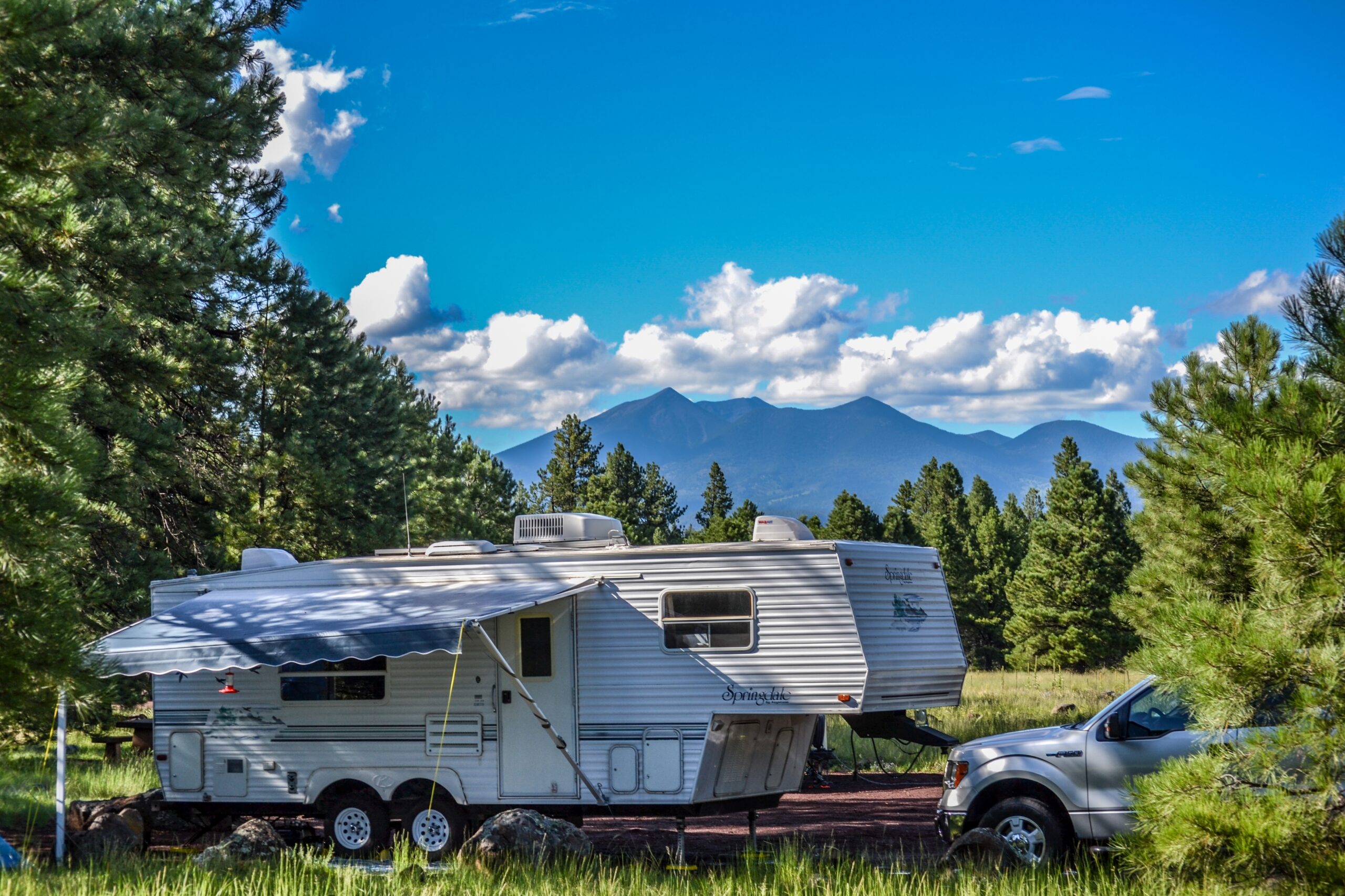
The open road, the changing scenery, the freedom from traditional mortgages and hefty utility bills – it’s a dream that captures the imagination of countless Americans. With high housing costs and a universal desire for more flexibility, the allure of full-time RV living on your own property has never been stronger. Imagine waking up to a new view every week or establishing a cozy, mobile homestead without the constraints of a conventional home. It’s a compelling vision of simplified living and boundless adventure, promising a unique way to explore America while maintaining a sense of home.
However, this appealing vision of mobile freedom often encounters a significant roadblock: the complex and often perplexing web of state and local regulations. While many states genuinely welcome the full-time RV lifestyle, the ability to simply park your recreational vehicle on your own land and call it home isn’t always straightforward. What seems like a simple personal choice can quickly become a legal quagmire, especially when local governments step in to define what constitutes a “legal dwelling” on private property. The regulations vary so widely that a setup perfectly legal in one county could be strictly prohibited just a few miles down the road.
Understanding these diverse rules is absolutely critical before you commit to the RV life. This comprehensive guide aims to cut through the confusion, offering a state-by-state breakdown of where you can and cannot legally live in an RV on your private property. We’ll start by exploring the states that pose the most significant challenges, from outright statewide bans to regulations that make full-time RV residency functionally impossible. Our goal is to equip you with the practical, actionable insights you need to navigate these legal waters and make informed decisions for your ultimate RV adventure.
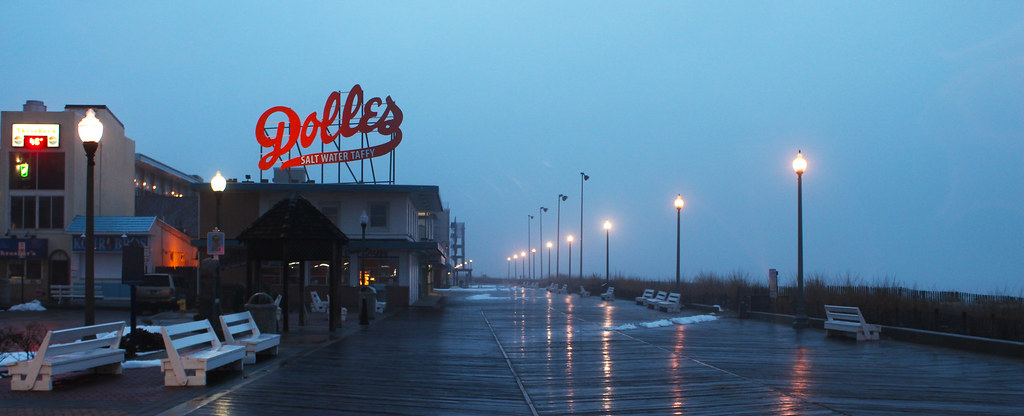
1. **Delaware: The Lone Statewide Ban**When it comes to definitive state-level prohibitions on full-time RV living outside of licensed parks, Delaware stands alone. This isn’t a matter of nuanced local ordinances or tricky zoning; Delaware has a clear, statewide prohibition that directly addresses and restricts the use of RVs as permanent residences. It’s a crucial distinction that sets Delaware apart from every other state in the U.S., meaning that if you’re dreaming of setting up your RV as a permanent home on private land, Delaware makes it explicitly illegal.
The state’s Manufactured Homes and Manufactured Home Communities Act (Title 25, Chapter 70) is the key piece of legislation here. While the Act does include RVs and similar vehicles under its “manufactured home” definitions, the criteria for an RV to qualify are exceptionally strict and narrow. Specifically, an RV, camper, or trailer may only qualify as a “manufactured home” if it meets three conditions: it must be located in a manufactured home community with at least two HUD-code homes, it must be the tenant’s primary residence, and it must no longer be mobile. For the vast majority of RVers, these conditions are simply not feasible or desirable.
Furthermore, Section 7004(a) of the Act explicitly exempts standard RV sites from the protections offered by the Manufactured Home Act. This means if your RV is still mobile, or if it’s parked on land outside a licensed park or community, the Act’s provisions don’t apply. Instead, other zoning and building codes take over, and these codes almost universally treat RVs as temporary lodging, not permanent dwellings. The bottom line for Delaware is stark: outside of these highly specific and restrictive licensed manufactured home communities, RVs, whether on your own land, a friend’s property, or any unlicensed lot, may only be occupied for up to 24 hours. Anything beyond that is a direct violation, making Delaware the only U.S. state with a clear, enforceable, and statewide ban on full-time RV living outside licensed parks.
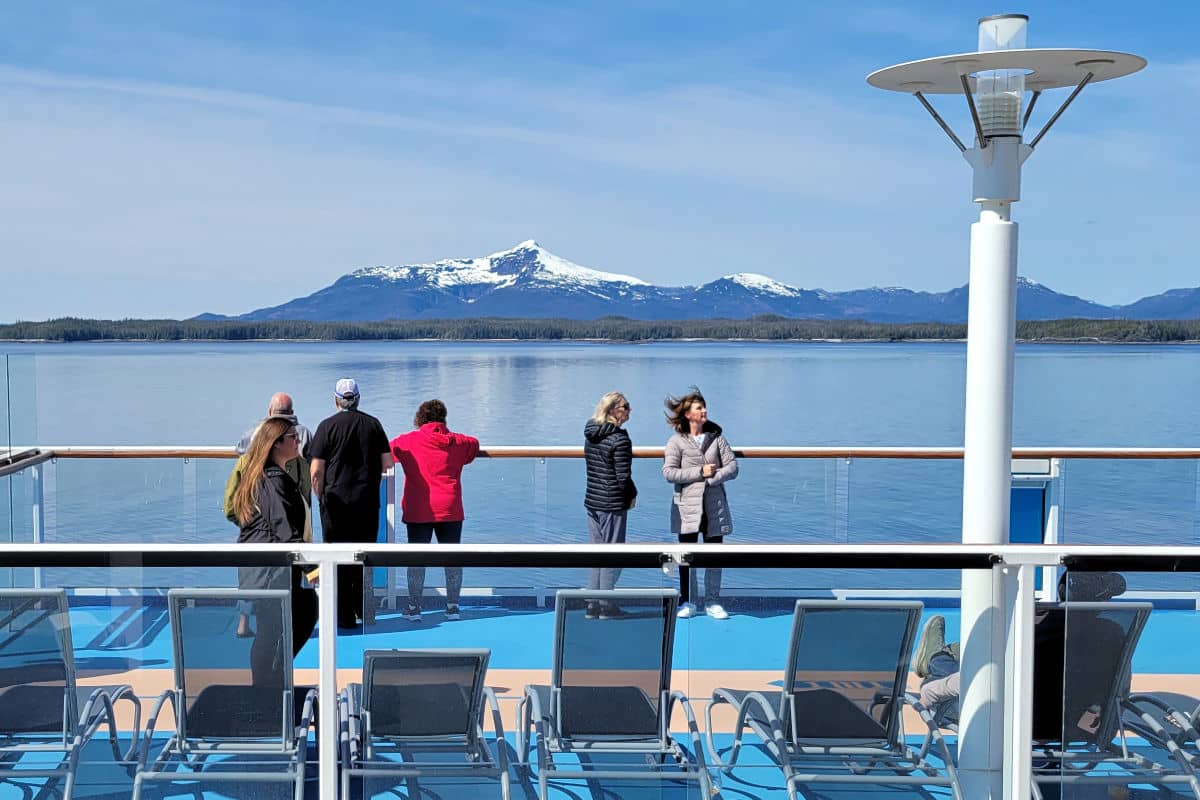
2. **Alaska: Strict Limitations on Stays**While not an outright statewide ban in the same vein as Delaware, Alaska imposes significant restrictions that effectively prevent full-time RV residency in one location. The state allows limited RV camping, but this is typically capped at a maximum of 14 days in any single spot. This regulation is designed to facilitate recreational use and short-term travel, not to support a permanent residential lifestyle on private property, even if that property belongs to you.
This 14-day limit means that aspiring full-time RV residents in Alaska would constantly need to relocate their vehicles, a logistical challenge that undermines the very idea of a fixed home base. The intention behind such regulations is often to prevent the establishment of long-term encampments that might not meet traditional housing standards or local infrastructure requirements for utilities and waste management. While the allure of Alaska’s vast wilderness and stunning natural beauty makes it a prime destination for RV travel, it’s critical to understand that the state’s laws are not conducive to establishing a permanent RV residence on private land.
For anyone considering RV living in Alaska, this limitation means that full-time residency, as understood in a stationary sense, is simply not permitted. While you can certainly enjoy extended periods of RV travel and camping, maintaining a permanent home in your RV on your own property for more than two weeks in one location is against the regulations. This necessitates either frequent moves or finding designated RV parks that cater to longer-term stays, which come with their own rules and fees, effectively preventing the “live on your own land” scenario that many RVers seek.

3. **Hawaii: Functionally Impossible Due to Local Ordinances**Hawaii is another state frequently cited as having a statewide ban on RV living, and while the context clarifies this isn’t a *blanket* statewide ban like Delaware, it makes full-time RV living on private property functionally very difficult, if not impossible, through a complex web of local ordinances and zoning laws. The tropical paradise may seem ideal for a mobile lifestyle, but the practical realities and legal framework present formidable barriers for those hoping to make an RV their permanent home.
The primary challenge in Hawaii is that sleeping in your RV is generally prohibited across the islands. While camping is permitted on some beaches, these are typically short-term recreational allowances, and extensive research on local ordinances is absolutely crucial before even attempting long-term RV stays. Parking restrictions for RVs can be exceedingly strict in certain areas, further complicating any plans for extended residency.
Thorough research is not just recommended; it’s practically a prerequisite for anyone considering full-time RV living in Hawaii. The combination of general prohibitions on sleeping in RVs, strict parking rules, and the heavy reliance on local ordinances to define acceptable land use creates an environment where establishing a permanent RV home on private land is exceptionally challenging. The state’s focus on maintaining its unique environment and managing limited land resources often translates into stringent regulations that prioritize traditional housing structures, pushing RVs into a temporary, recreational role rather than a permanent residential one.
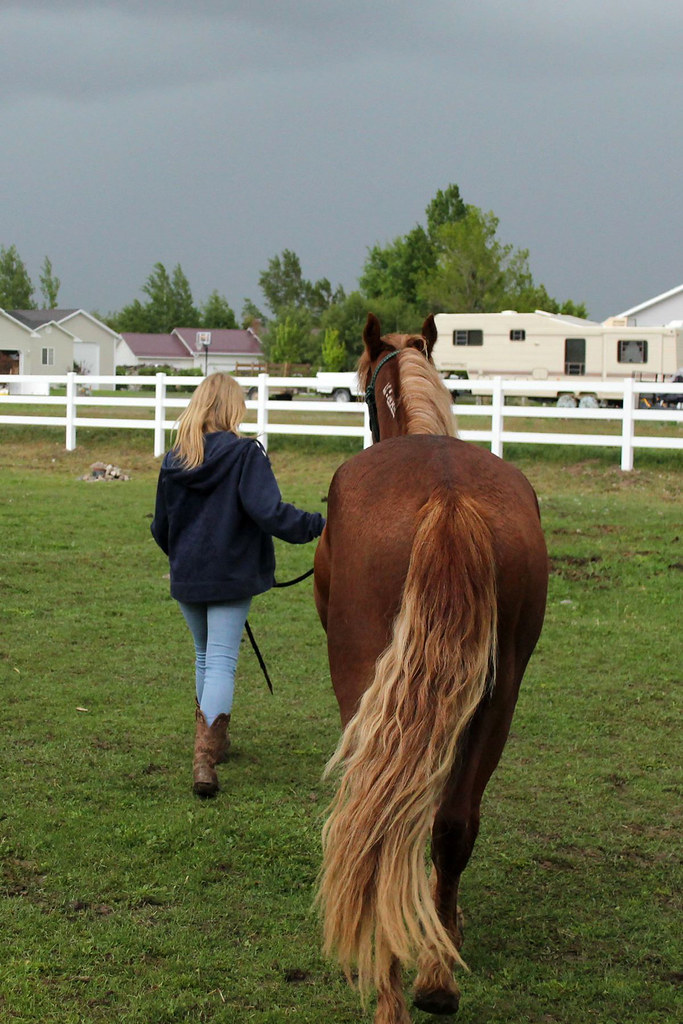
4. **Idaho: Conditional and Seasonal Restrictions**Idaho presents a fascinating case study in conditional RV living, where state-level regulations don’t outright ban full-time residency on private property but impose such specific and restrictive conditions that it becomes a highly regulated and often temporary option. If you’re envisioning year-round, unencumbered RV living on your own plot of Idaho land, you’ll need to pay very close attention to the details, as the state has clear limitations on duration and specific requirements for both the RV and its occupants.
In Idaho, an RV can only be considered a permanent residence on private property if it meets particular infrastructure requirements: it must have proper wastewater hookups and cannot be located inside an enclosed building. These conditions ensure basic sanitation and safety standards are met, aligning RV living more closely with traditional housing expectations for utilities. However, the restrictions don’t stop there. Occupancy is strictly limited to six months within a year, and it is explicitly prohibited between November 30th and March 15th, effectively making year-round residency impossible due to seasonal bans.
Beyond the physical and seasonal limitations, Idaho also places requirements on who can actually occupy the RV as a permanent residence. The occupant must fall into one of three categories: an Idaho resident with local employment, a caregiver for the household, or a family member residing in the household. These criteria clearly demonstrate the state’s intent to regulate RV living as a secondary or temporary arrangement, rather than a primary, unrestricted residential choice for anyone. Such precise stipulations make full-time RV living in Idaho on private property a highly conditional and often complex endeavor, requiring meticulous planning and adherence to strict guidelines.
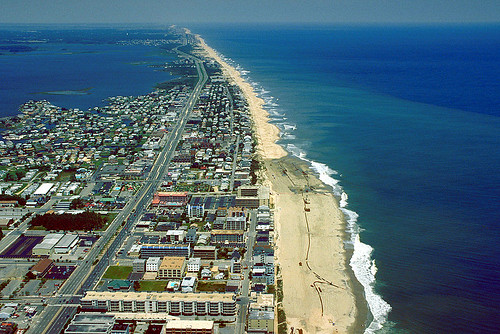
5. **Maryland: Not a Permanent Residence**Maryland has a set of specific regulations for RV living that, while not a blanket prohibition, clearly define RVs as *not* permanent residences. This distinction is crucial for anyone hoping to establish a full-time RV home on their private property within the state. The regulations articulate precise conditions under which an RV can be used on land, fundamentally limiting its role to something other than a primary, year-round dwelling.
One of the key requirements in Maryland is that the property where the RV is situated must be one acre or larger. This land-size stipulation suggests a measure designed to prevent dense concentrations of RVs and ensure adequate space for potential utility installations or buffers. More importantly, the state explicitly states that RVs cannot be permanent residences. This means that even if you meet the acreage requirement and comply with all other local ordinances, you cannot legally declare your RV as your primary, ongoing home on your property in Maryland.
Furthermore, the regulations specify who can utilize an RV on a permitted property: the property owner, their tenants, or guests. This reinforces the temporary nature of RV occupancy and its accessory role to a primary dwelling or land use. For RVers seeking genuine full-time residency, Maryland’s stance is a significant barrier. It means that while an RV can certainly be part of your property, it cannot serve as your singular, permanent dwelling unit, pushing individuals interested in this lifestyle to seek out alternatives or different states that embrace RVs as legitimate permanent homes.
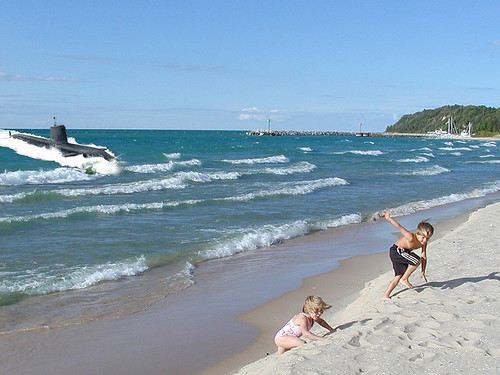
6. **Michigan: “Travel Trailers” and “Camping Trailers” Not Permanent**Michigan is another state often misidentified as having a blanket statewide ban on RV living, but the reality, as clarified by the context, is more nuanced. While Michigan does not have an overarching state ban on RVs as permanent homes, its state law regarding mobile homes contains specific language that prohibits the use of “travel trailers” and “camping trailers” as permanent residences. This distinction is vital for understanding the legal landscape of RV living on private property in Michigan.
The implication of this state law is that while some types of RVs might fall under “mobile home” definitions that *could* allow for permanent residency under specific conditions (usually in licensed mobile home parks), the vast majority of commonly understood RVs – those designed for travel and camping – are explicitly excluded from being permanent homes. This means that if your RV is categorized as a travel trailer or camping trailer, you cannot legally use it as your year-round primary residence on your own land in Michigan.
However, the law does offer a small window for temporary use: living in these types of RVs on your property for short periods *as emergency shelters* may be allowed. This highlights the state’s view of RVs primarily as temporary or emergency accommodations rather than stable, long-term dwellings. Given that the definition of “short periods” and “emergency shelters” can be subjective, and local regulations often layer on additional restrictions, it is imperative for anyone considering RV living in Michigan to thoroughly check local ordinances for specific details and avoid potential violations. The state leaves much to county or city governments, so while there isn’t a *blanket* ban, the state law itself already places significant limitations on common RV types.
While some states draw a firm line on full-time RV living, the reality across much of the U.S. is far more nuanced. Beyond outright prohibitions, many jurisdictions operate within a complex tapestry of local ordinances, requiring specific permits, or imposing unique functional limitations that aspiring RV residents must navigate. It’s a landscape where the freedom of the open road often meets the granular details of county planning and municipal bylaws. Understanding these hyper-local rules isn’t just a recommendation; it’s the key to making your RV dreams a sustainable reality.
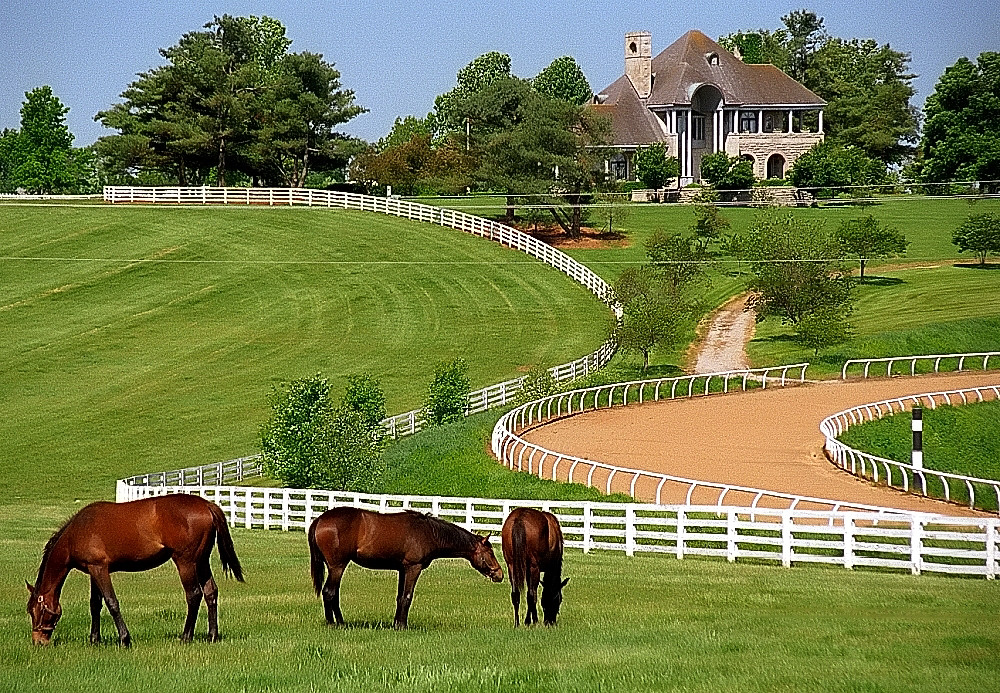
7. **Kentucky: The Crucial Role of Local Ordinances**In Kentucky, the question of whether you can legally live full-time in an RV on your private property is squarely in the hands of local governments. This isn’t a situation dictated by a blanket statewide policy, but rather by the specific land-use regulations that counties and municipalities have established. This decentralized approach creates a diverse and sometimes complex regulatory environment across the Bluegrass State, making a uniform answer impossible.
Before you even consider setting up your RV as a permanent home, thorough research into the specific ordinances of your chosen location is not just advisable; it’s an absolutely crucial step for ensuring compliance. What might be perfectly acceptable in one rural county, perhaps with less stringent zoning or a more laid-back approach, could be strictly prohibited in a more populated city or suburban area. This inherent variability demands hyper-local investigation to avoid unwelcome surprises.
For instance, the context clearly highlights that “Lexington prohibits inhabiting campers on private property.” This direct prohibition at a major city level serves as a stark reminder of the importance of checking local rules before making any long-term plans. Such specific bans often arise from legitimate concerns over property values, the strain on existing infrastructure like sewage and water, or a community’s desire to maintain certain aesthetic standards.
Therefore, for any aspiring RV resident in Kentucky, a critical first action is to engage directly with the local planning department or municipal offices. They are the authoritative source for the most current and applicable zoning laws regarding recreational vehicles as permanent dwellings on private land. Don’t assume that what applies to a traditional home will necessarily extend to an RV.
Ultimately, Kentucky exemplifies how crucial it is to delve into local details. Relying solely on general state-level information can lead to significant misunderstandings and potential legal issues. To navigate this patchwork of regulations successfully, pragmatic RVers must proactively engage to understand the precise rules governing full-time RV occupancy in their specific area, ensuring their mobile homestead is both legal and sustainable.

8. **Nebraska: Permits Are Non-Negotiable for Extended Stays**If you’re planning to make Nebraska your long-term RV home, be aware that the state introduces a specific requirement: a permit for any RV staying for 30 days or more. This isn’t just a suggestion for good practice; it’s a mandatory legal step that clearly differentiates short-term recreational use from longer-term occupancy on private property. This permit system is a key mechanism for local authorities to track and regulate extended RV stays within their jurisdictions.
The duration threshold of 30 days is a critical point to remember for anyone considering a lengthy stay. Should your RV occupancy on private land extend beyond this period, obtaining the necessary permit becomes a legal prerequisite. This requirement underscores that while Nebraska permits RV living, it does so under a structured framework, ensuring that longer-term residents meet specific administrative criteria designed for oversight and compliance, which often include safety and sanitation considerations.
An important detail for current and future RV owners in Nebraska is that these permits are explicitly non-transferable. This means that if you purchase an RV that was previously permitted by another owner for an extended stay, you, as the new owner, are expressly required to obtain a brand new permit in your name. This ensures that all extended RV occupancies are properly documented and meet current regulatory standards, preventing any potential loopholes or confusion in ownership and use.
This permit requirement clearly highlights Nebraska’s approach to managing RV living, signaling that while it’s generally permitted, it’s not an entirely unrestricted endeavor. It’s a clear administrative mechanism for ensuring that full-time RV residents are accounted for and are operating within the state’s established guidelines for residential use.
Therefore, always factor in the time and effort needed to secure this permit if your stay extends beyond the initial 30-day window, as it’s a foundational step for legal, long-term RV living here. Ignoring this vital step could lead to fines or the forced relocation of your RV, disrupting your mobile living plans.
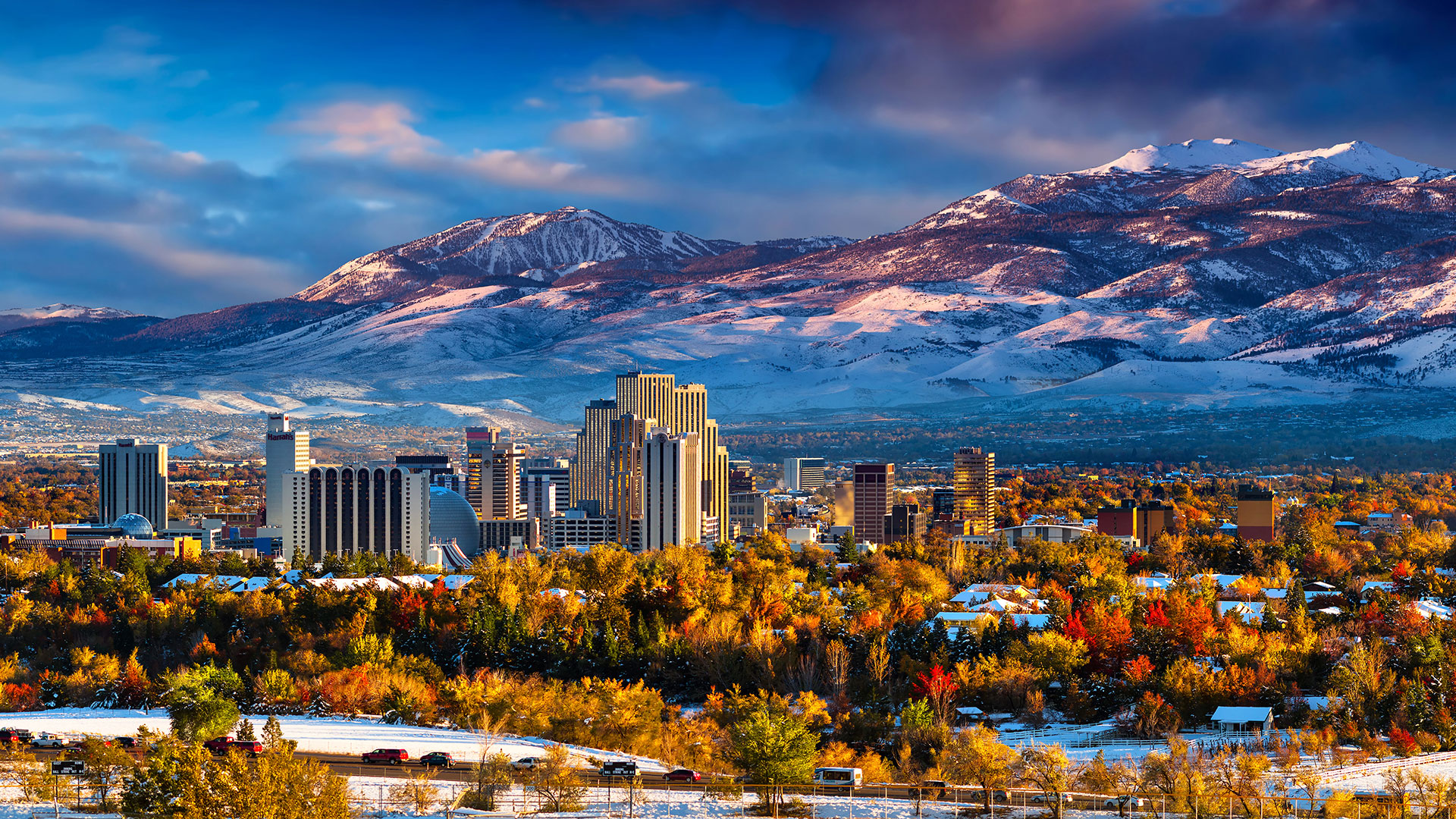
9. **Nevada: Beyond City Limits with Specific RV Requirements**Nevada offers a promising outlook for full-time RV living, but it comes with distinct geographic and vehicle-related caveats that aspiring residents must fully understand. The state generally allows full-time RV living, but with a critical distinction: it must be “only outside city or town limits.” This immediately steers aspiring RV homesteaders toward more rural or unincorporated areas, away from the stricter zoning and population density controls typically found within urban boundaries.
This geographical restriction is a common approach in many states, aiming to balance the desire for alternative living with existing municipal infrastructure and land-use plans. Living outside city limits often implies less stringent regulations regarding lot size, utility hookups, and the types of dwellings permitted. However, it also means potentially fewer readily available amenities and services, requiring self-sufficiency from RV residents.
Beyond location, Nevada also imposes specific functional requirements on the RV itself. To qualify for full-time living, “The RV must also have a bathroom and shower and pass any required safety inspections.” This isn’t just about having basic facilities; it’s about ensuring that the vehicle is self-contained and meets essential health and safety standards for long-term habitation, mitigating risks associated with improper waste disposal or unsafe living conditions.
These stipulations are designed to prevent issues related to sanitation, public welfare, and environmental impact, bringing RVs closer to the standards expected of traditional homes. It ensures that any vehicle serving as a permanent residence is equipped to handle daily living without negatively impacting its surroundings.
Therefore, simply owning an RV isn’t enough; it must be adequately equipped, maintained, and legally compliant. The emphasis on features like a bathroom and shower, along with passing safety inspections, underscores a practical approach to allowing RV living. This ensures that vehicles used as permanent homes meet a baseline of habitability, making Nevada an option, but one that requires careful consideration of both where you choose to park and what your RV physically offers.
Read more about: The Power Play Blocked: Why Dodge’s V8 Durango Lineup Hits a Wall in 15 CARB States

10. **New Hampshire: Zoned Land and Conditional Stays**New Hampshire, while generally permitting RV living statewide, introduces a significant layer of restrictions that necessitate a close look at local regulations. The flexibility of RV life in the Granite State often depends heavily on precisely where you choose to park your wheels, as many towns have specific zoning requirements for such dwellings. This means that using your RV as a permanent residence can’t just happen anywhere on private land.
A common restriction encountered is that many municipalities in New Hampshire “require parking RVs on designated land zoned for trailer parks or campsites.” This approach effectively funnels long-term RV residents into commercial or purpose-built communities, rather than allowing unfettered use of private residential lots. It’s a strategy for towns to manage land use, infrastructure demands, and the visual impact of RVs within their communities, ensuring a more orderly development.
This often means that even if you own private property, if it’s not appropriately zoned for RV habitation, you may be unable to legally live in your RV there long-term. Such zoning considerations are critical for maintaining community character and ensuring proper access to utilities and emergency services.
However, there’s a notable exception and a conditional allowance in some areas that provides a temporary pathway. The context states that some towns “may allow living in your RV while actively working on building a permanent home.” This provision offers a practical solution for those undergoing construction, providing on-site accommodation during a transition phase. This demonstrates a degree of flexibility, albeit one tied to a specific, temporary purpose.
For all other scenarios, it becomes absolutely imperative to “Check local regulations for details” before committing to a spot. The specific rules can vary widely from town to town, directly impacting your ability to establish full-time residency. Understanding these localized zoning and conditional-use provisions is the definitive step to ensuring your RV living plans align with New Hampshire’s regulatory landscape and prevent costly legal complications.

11. **New Jersey: Permits and Proper Maintenance are Key**If you’re considering setting up your full-time RV home in New Jersey, be prepared for a crucial prerequisite: “Permits are required for living in an RV on private property.” This isn’t a state that embraces an entirely hands-off approach to alternative dwellings. Instead, it employs a formal permitting system to ensure that RV residency aligns with local planning, safety, and public health standards. Obtaining this permit is a foundational and non-negotiable step you must complete before settling down.
This permit requirement is a clear indication that New Jersey regulates extended RV stays, moving beyond a simple recreational vehicle status to treat it with the seriousness of a dwelling. It allows local governments to ensure that the proposed RV living situation meets community standards, including aspects like adequate utility access, proper waste management, and overall impact on the surrounding area and existing infrastructure.
Beyond the initial permit, New Jersey also places an ongoing responsibility on RV residents to maintain their vehicles to a high standard. The regulations explicitly state that “all RVs must be well-maintained and not create health or safety hazards.” This means that your RV can’t just be functional; it must actively be kept in good condition, preventing issues such as improper waste disposal, structural disrepair, or other concerns that could negatively impact public health or safety within the community.
This focus on maintenance extends to ensuring proper waste management services are in place if necessary, aligning with broader public health objectives. It emphasizes that the freedom of RV living comes with a responsibility to maintain a safe and sanitary environment for both the residents and the surrounding community.
These twin requirements — securing permits and committing to rigorous maintenance — highlight New Jersey’s balanced approach: allowing RV living, but only under clearly defined and regulated conditions. The need for permits ensures administrative oversight, while the maintenance clause emphasizes responsible RV ownership. Anyone looking to embrace full-time RV life in the Garden State must be ready to navigate both the bureaucratic process of securing permits and the practical demands of keeping their vehicle up to par.
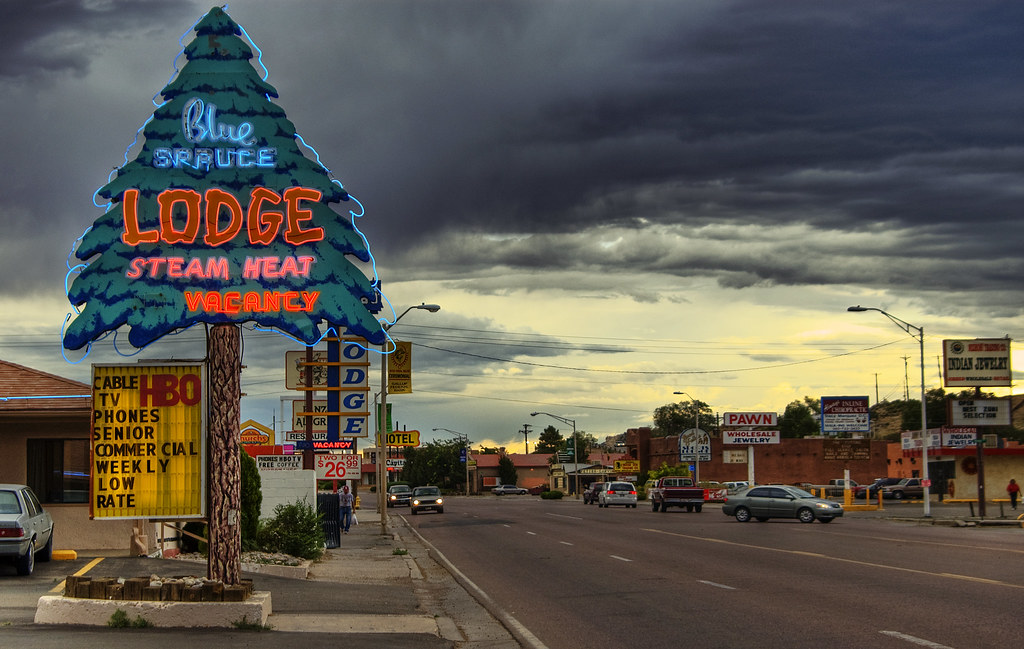
12. **New Mexico: Stricter Regulations and Utility Hookup Demands**New Mexico, while not having a statewide ban on full-time RV living, is nonetheless characterized by “stricter regulations for RV living on zoned land.” This indicates a more prescriptive environment where local authorities exercise significant control over how RVs can be used as permanent residences on private property. The state’s focus on structured land use means that you’ll almost certainly encounter specific conditions that must be met before establishing your RV home.
A key requirement in most counties is the “connection to an onsite sewage system.” This goes beyond simple holding tanks and often implies a more permanent infrastructure setup, aligning RVs with traditional housing standards for wastewater management. This emphasis on proper sanitation infrastructure is a critical component of public health and environmental protection regulations, ensuring that RV living does not create localized hazards or contribute to pollution.
Furthermore, for your RV to be recognized as a legitimate long-term residence on private property, a “valid registration from the New Mexico Department of Motor Vehicles” is mandatory. This ensures that your vehicle is legally recognized and compliant with state transportation laws, even if it is stationary on private property. Maintaining current registration is a fundamental aspect of legal vehicle ownership and helps authorities identify and track vehicles used as long-term dwellings.
These requirements highlight that New Mexico’s approach is designed to integrate RVs into existing community frameworks, rather than treating them as entirely separate entities. It’s about ensuring that alternative dwellings meet the same fundamental standards for health and safety as traditional homes, safeguarding both occupants and the wider public.
These stipulations make it clear that New Mexico’s approach to full-time RV living on private land is not one of casual acceptance. Instead, it prioritizes public health, safety, and proper infrastructure integration. For those planning a long-term RV stay in the Land of Enchantment, be prepared for a more rigorous process that involves both potential utility upgrades and consistent administrative compliance, ensuring your mobile home meets the state’s higher standards for permanent residency.
Navigating the legal landscape of full-time RV living on private property clearly demands diligence and a ‘check before you commit’ mindset. From statewide prohibitions to hyper-local zoning laws, permits, and specific vehicle requirements, the path to your RV dream home is paved with regulations. While the allure of freedom is strong, understanding these nuances is essential to ensuring your mobile homestead is not just a dream, but a fully legal and enjoyable reality. Always remember: the adventure starts with knowing the rules of the road, and of the land.


